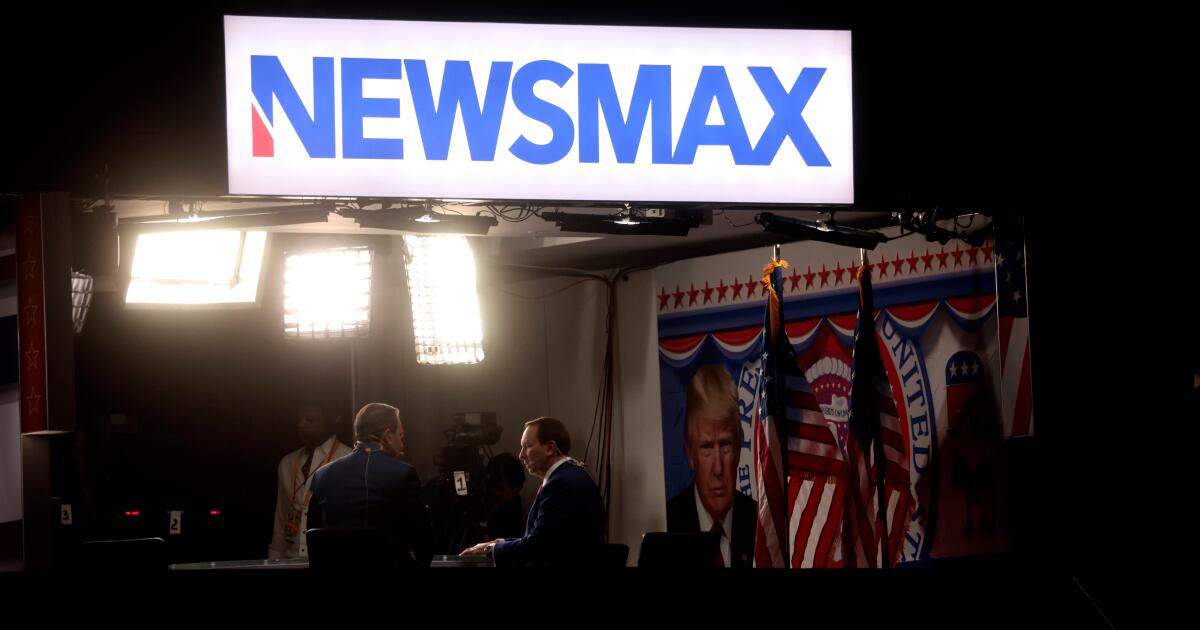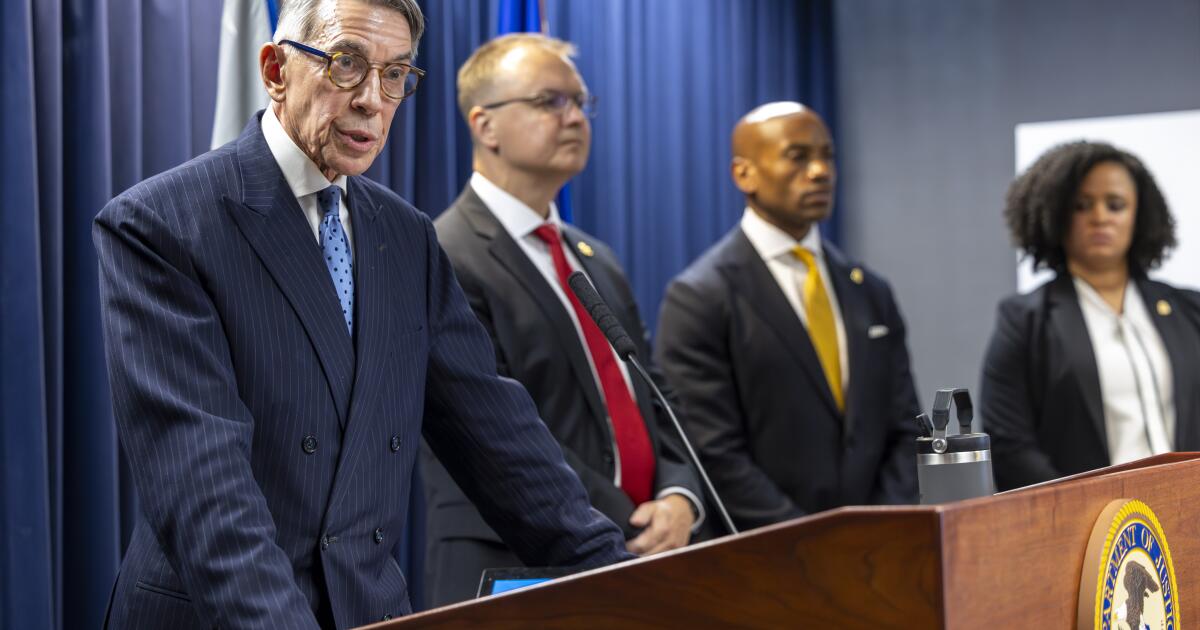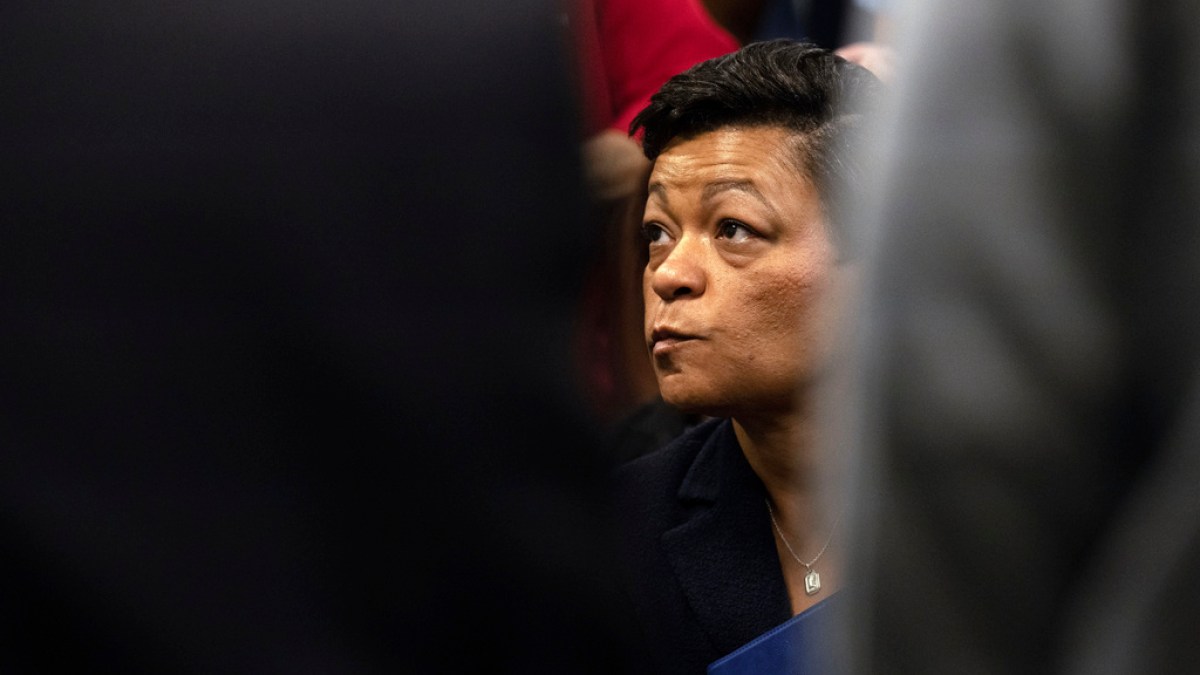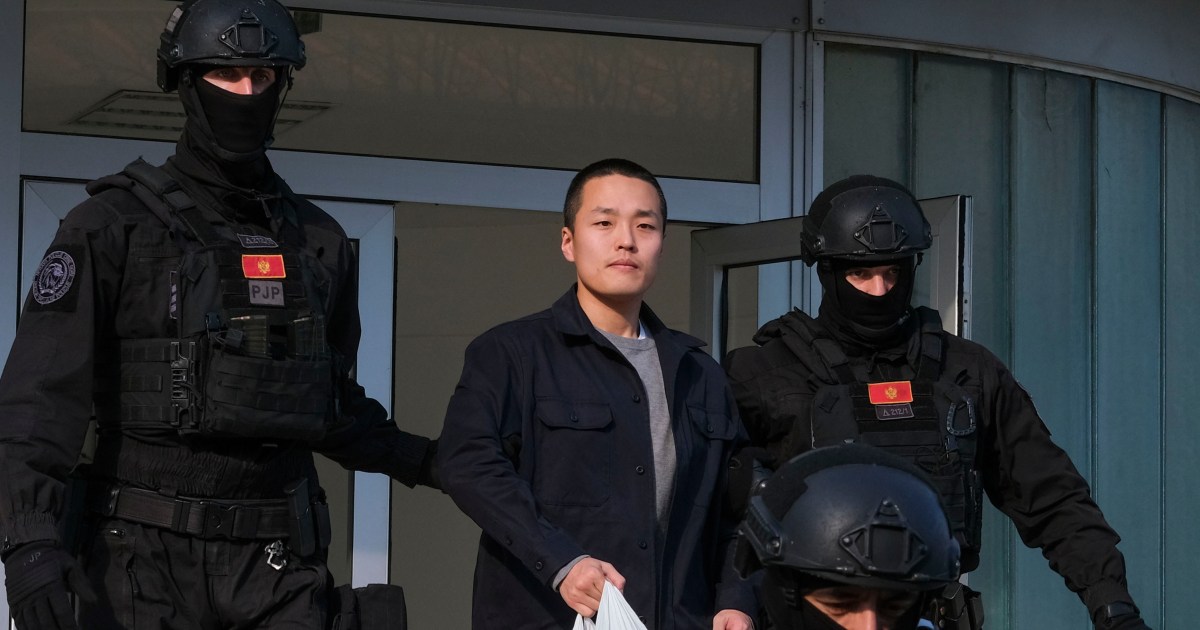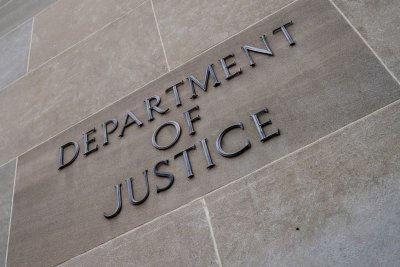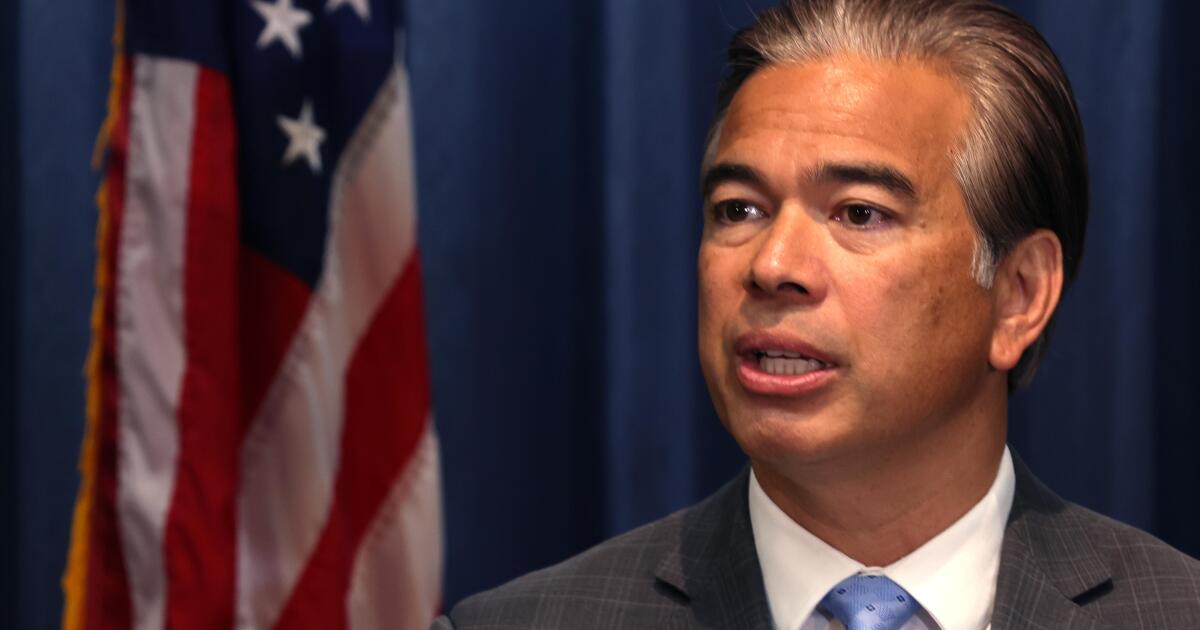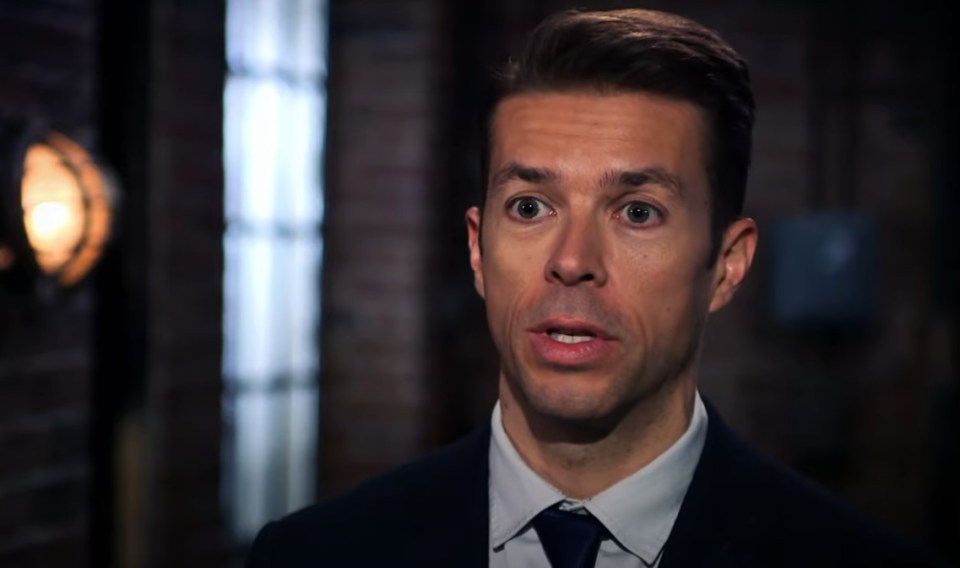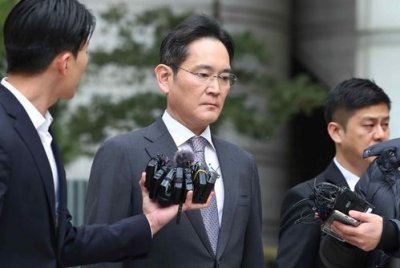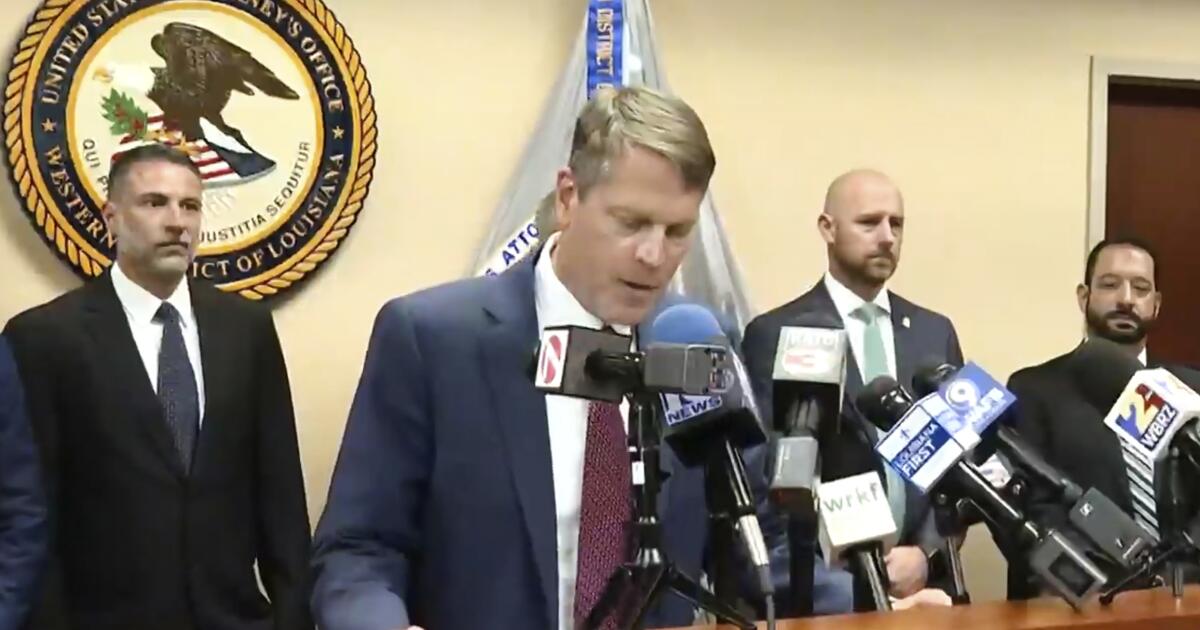Appeals court throws out massive civil fraud penalty against President Trump
NEW YORK — An appeals court has thrown out the massive civil fraud penalty against President Trump, ruling Thursday in New York state’s lawsuit accusing him of exaggerating his wealth.
The decision came seven months after the Republican returned to the White House. A panel of five judges in New York’s mid-level Appellate Division said the verdict, which stood to cost Trump more than $515 million and rock his real estate empire, was “excessive.”
After finding that Trump engaged in fraud by flagrantly padding financial statements that went to lenders and insurers, Judge Arthur Engoron ordered him last year to pay $355 million in penalties. With interest, the sum has topped $515 million.
The total — combined with penalties levied on some other Trump Organization executives, including Trump’s sons Eric and Donald Jr. — now exceeds $527 million, with interest.
“While the injunctive relief ordered by the court is well crafted to curb defendants’ business culture, the court’s disgorgement order, which directs that defendants pay nearly half a billion dollars to the State of New York, is an excessive fine that violates the Eighth Amendment of the United States Constitution,” Judges Dianne T. Renwick and Peter H. Moulton wrote in one of several opinions shaping the appeals court’s ruling.
Engoron also imposed other punishments, such as banning Trump and his two eldest sons from serving in corporate leadership for a few years. Those provisions have been on pause during Trump’s appeal, and he was able to hold off collection of the money by posting a $175 million bond.
The court, which was split on the merits of the lawsuit and the lower court’s fraud finding, dismissed the penalty Engoron imposed in its entirety while also leaving a pathway for further appeals to the state’s highest court, the Court of Appeals.
The appeals court, the Appellate Division of the state’s trial court, took an unusually long time to rule, weighing Trump’s appeal for nearly 11 months after oral arguments last fall. Normally, appeals are decided in a matter of weeks or a few months.
New York Atty. Gen. Letitia James, who brought the suit on the state’s behalf, has said the businessman-turned-politician engaged in “lying, cheating, and staggering fraud.” Her office had no immediate comment after Thursday’s decision.
Trump and his co-defendants denied wrongdoing. In a six-minute summation of sorts after a monthslong trial, Trump proclaimed in January 2024 that he was “an innocent man” and the case was a “fraud on me.” He has repeatedly maintained that the case and verdict were political moves by James and Engoron, who are both Democrats.
Trump’s Justice Department has subpoenaed James for records related to the lawsuit, among other documents, as part of an investigation into whether she violated the president’s civil rights. James’ personal attorney, Abbe D. Lowell, has said that investigating the fraud case is “the most blatant and desperate example of this administration carrying out the president’s political retribution campaign.”
Trump and his lawyers said his financial statements weren’t deceptive, since they came with disclaimers noting they weren’t audited. The defense also noted that bankers and insurers independently evaluated the numbers, and the loans were repaid.
Despite such discrepancies as tripling the size of his Trump Tower penthouse, he said the financial statements were, if anything, lowball estimates of his fortune.
During an appellate court hearing in September, Trump’s lawyers argued that many of the case’s allegations were too old, an assertion they made unsuccessfully before trial. The defense also contends that James misused a consumer-protection law to sue Trump and improperly policed private business transactions that were satisfactory to those involved.
State attorneys said the law in question applies to fraudulent or illegal business conduct, whether it targets everyday consumers or big corporations. Though Trump insists no one was harmed by the financial statements, the state contends that the numbers led lenders to make riskier loans than they knew, and that honest borrowers lose out when others game their net-worth numbers.
The state has argued that the verdict rests on ample evidence and that the scale of the penalty comports with Trump’s gains, including his profits on properties financed with the loans and the interest he saved by getting favorable terms offered to wealthy borrowers.
The civil fraud case was just one of several legal obstacles for Trump as he campaigned, won and segued to a second term as president.
On Jan. 10, he was sentenced in his criminal hush money case to what’s known as an unconditional discharge, leaving his conviction on the books but sparing him jail, probation, a fine or other punishment. He is appealing the conviction.
And in December, a federal appeals court upheld a jury’s finding that Trump sexually abused writer E. Jean Carroll in the mid-1990s and later defamed her, affirming a $5 million judgment against him. The appeals court declined in June to reconsider; he still can try to get the Supreme Court to hear his appeal.
He’s also appealing a subsequent verdict that requires him to pay Carroll $83.3 million for additional defamation claims.
Peltz and Sisak write for the Associated Press.




